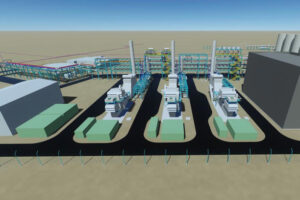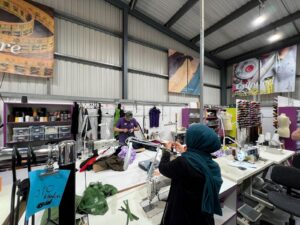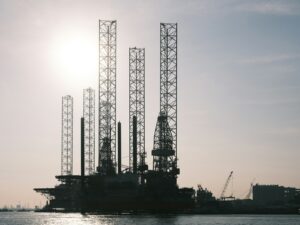Transforming household waste into renewable fuel
A company set up by Swindon Council is delivering an environmentally friendly waste solution for the town that’s saving local people money in the process
Swindon, with its growing population of around 210,000 people, generates almost 50,000 tonnes of municipal waste a year. Now, thanks to our unique Solid Recovered Fuel (SRF) plant, we’re helping the council divert 97% of that waste from landfill, saving over £1.6m a year in landfill tax at a time when budgets are under severe pressure, and producing a valuable energy-generating resource which is displacing fossil fuels.
Previously, all Swindon’s non-recyclable waste was sent to landfill. With landfill costs rising and sites filling up and becoming more scarce, the council needed a more cost-effective and environmentally-friendly solution. Public Power Solutions (PPS) and Swindon Council worked together to consider the alternatives. After many months of research, we concluded that building an SRF plant to transform non-recyclable household waste into a high-energy fuel was the best solution.
While we considered building our own large-scale energy generator on site, we felt that the costs and technological risks were too high, although this remains a future aspiration. The end product SRF has found a competitive and flexible market in Europe where it is mainly used in cement kilns. We expect that soon it can also be used in the UK.
The plant was completed in 2014, with construction funded by an £8.7m loan from the council – one of the largest the council has disbursed in its history – and after just 18 months of operating it is already cost-neutral for the local authority. Council leader David Renard describes the move as ‘probably the biggest decision we have had to make in recent times’, adding ‘but we thought this was a risk worth taking for the people and future of Swindon’.
Using state-of-the-art technology, after the recyclables are removed, what is left is shredded and dried to produce a high-energy fuel with a calorific content equal to coal. Any noxious gases are removed and burned so they can be captured, so that only steam is released into the atmosphere.
The plant has been built on the same site as Swindon’s existing waste recycling centre, also home to the town’s dustcarts, reducing transport costs and emissions. The council’s refuse collectors now spend less time waiting as recycling and waste processing facilities are on a single site. They also prefer tipping waste onto a hard standing area to dumping it at a landfill site. This translates into more costs savings for the council in terms of reducing wear and tear on vehicles and mileage, extending the life of the vehicles by over two years.
As well as processing all Swindon’s municipal rubbish the site has capacity for another 50,000 tonnes of trade and commercial waste, helping local waste-providers to divert waste from landfill. Our gate fees are lower than landfills’, providing both a commercial and environmental incentive, and contributing to the plant’s profitability.
Working with the local community to improve recycling rates and reduce overall waste is also important to us, so we’ve implemented a programme of engaging with local schools and other community groups, offering regular tours of the plant. When people see first hand what happens to their rubbish they become much more mindful of what they throw away. As one school reported back to us: ‘The students have not stopped talking about the visit. It was an excellent opportunity to see how much waste is really thrown away in the black wheelie bins and we hope that they go away and think about how they can change the habits of their families. They saw what happens to everything and how you are processing so much of it into fuel and recycling the rest so that minimal amount is sent to landfill.’
Of course, 97% isn’t enough for us, we’d like to see 100% diverted from landfill. The differential is accounted for by ‘fines’ and ‘heavies’ and our team is working on ways they can be put back into the process. We’re aiming for an even more holistic solution in the future which uses the fuel locally to deliver heat and power back to the households which produced the waste. Waste from eight homes could generate enough power for one home.
The SRF plant is a win-win-win solution for waste – saving cash-strapped councils money, delivering better value for council taxpayers, and better for the environment. We’ve made it work in Swindon, but it could work for any other local authority in the country.















